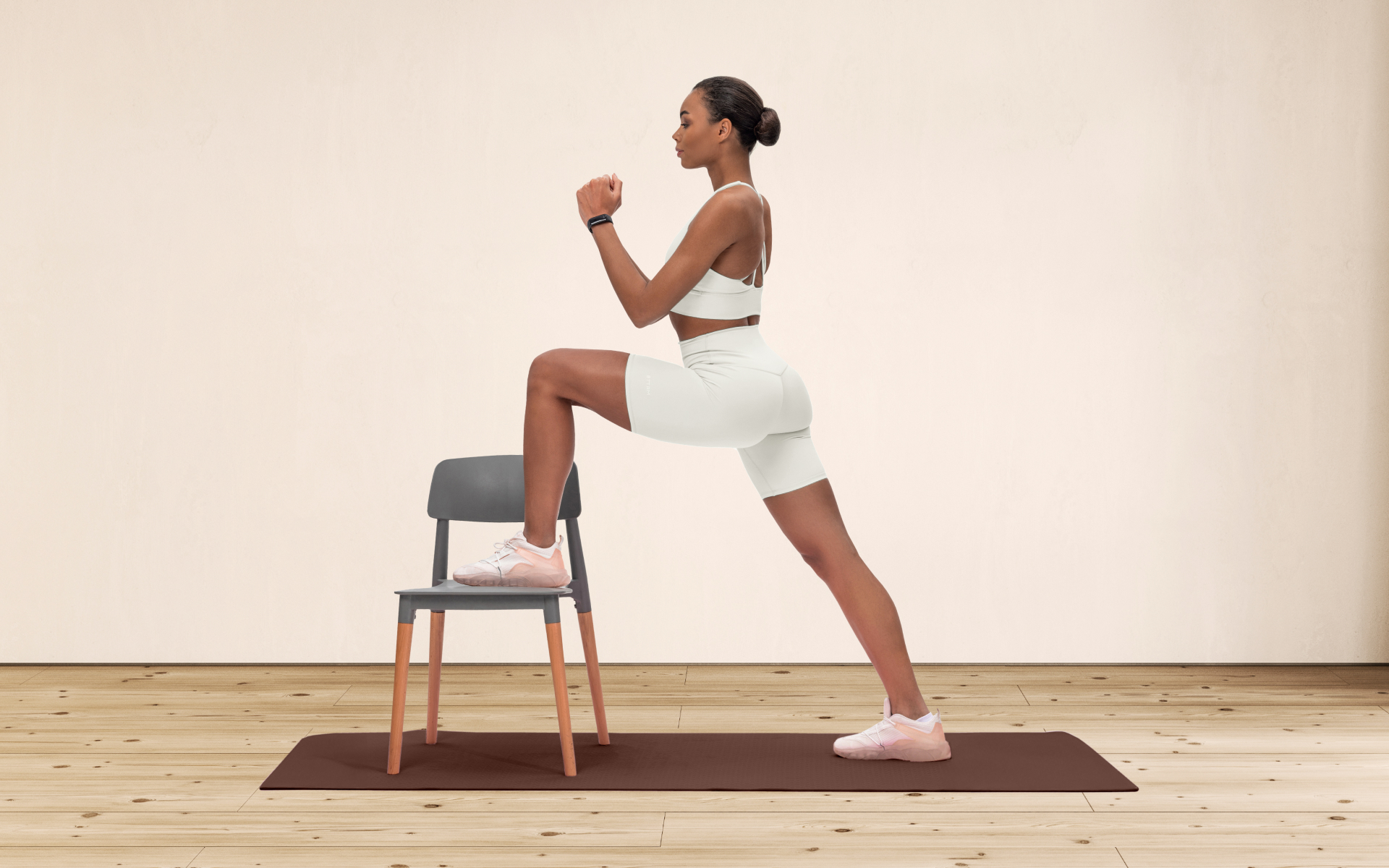How To Recover From Overtraining?
If you’re like most people, you have been wondering how to recover from overtraining. Chances are that at least once or twice you have pushed your body too far and then began to see some negative side effects related to overtraining. When people first begin to exercise or are working out with a specific timeline and goal in mind, quite a few will tend to push themselves too far without even realizing it. This leads to a condition of overtraining, which for the average gym-goer or athlete can be quite draining on both their physical and mental health.
What Is Overtraining?
Overtraining or the overtraining syndrome happens when an athlete or actually anyone seek to increase their performance by increasing some metric in their workouts. While there is nothing wrong with this, the problem comes when the person in question does not take time to rest and recover from training that taxes their body too hard (8).
How Do You Know If You’re Overtraining?
The feeling of overtraining is not the same as being exhausted or sore from working out. While your body and muscles might be very sore from some workouts, overdoing it at the gym is a quite a different feeling.
Overexerting yourself while working out affects your body and your mind, mood, and even your heart. Here are some things to watch out for, things that are helpful in letting you know that you are overtraining.
Signs And Symptoms Of Overtraining
If you are experiencing any of the below signs and symptoms, then you are most probably overtraining
-
Decreased Performance
This is usually the most common sign of overtraining. Have you realized that your performance at the gym has gone down? Maybe you have noticed that your strength and muscle endurance has decreased? Or maybe you are not as agile or fast as you previously were. If these are some of the symptoms that you are experiencing, then you could be over-exerting yourself.
-
Plateaued Progress
A plateau your physical progress goes hand in hand with overexercising. In this case, you will notice that no matter how hard you are working out, your muscles are no longer growing. Working out tears down muscle and rest days gives them time to heal, recover, and grow. Without this break, your muscles will keep tearing and may start burning.
If you are trying to lose weight and are over exercising, your weight loss will plateau and you might even gain weight (1). These extra pounds will be due to the stress you are placing on your body, which is prompting the production of cortisol, making your body hold on to fat.
Read More: Why Am I Not Getting Stronger: Reasons And Proven Ways To Bust Those Plateaus
-
A Compulsive Need To Workout
Being dedicated to exercising is fantastic, it helps you keep going and making it a lifestyle. However, not taking a break from the gym to just rest is not a healthy habit. If you realize that you are always thinking about your next workout and probably doing so several times a day, you should take a conscious break before injuring yourself.
-
Loss Of Appetite
This is quite a common occurrence, especially in competitive athletes who are always continually working out and training (5). This is caused by a hormonal imbalance that affects ghrelin and leptin, the hunger and satiety hormone, respectively.
-
Insomnia Or Restless Sleep
Sleep is highly regarded when it comes to weight loss and bodybuilding as it gives your body time to rest and repair itself. However, when you work out too much, the constant stress that your body is in prevents you from sleeping well and restfully. This, in turn, causes fatigue and moodiness.
-
Loss Of Enthusiasm And Lack Of Energy
It is not unusual to want to skip a gym session or feel too exhausted to go workout after a long day. However, if you are constantly under enthusiastic and cannot sum up enough energy to go to the gym or exercise at home, it might be because you have been overtraining and your body cannot take it anymore.
-
Lowered Immunity
While moderate workouts are known to help build a strong immune system, lower the risk of diabetes, and even prevent certain cancers, overtraining has the opposite effect on your immunity. While vigorous exercise does not lower immunity per se, it can make you susceptible to illness for up to 72 hours (4).
Want to build an attention-grabbing bubble butt, blast away fat that’s stored in all the wrong places, spring-clean your diet, turn back the clock on your skin, skyrocket your self-confidence and shatter your insecurities? Check out the BetterMe app and set this plan in motion!
-
Increased Injury And Pain In Muscles And Joints
Over exercising leads to you training in a weakened state. This leads to aggravating old injuries or getting injured more often. Overused muscles and joints also cause joint pain. If you are not sure that you are injured, take note of how long the pain lasts. Anything about or more than two weeks should be considered an injury.
-
Moodiness And Irritability
Exercise, in general, increases adrenaline, however, working out too much causes prolonged high levels of cortisol and increases your stress levels. When these two hormones are released together, there comes an imbalance that affects your mood and tends to make you more angry.
-
Depression
Many people use exercise as a way to deal with mental health issues, however overdoing it can have the opposite effect. Frustrations from not sleeping well cause this poor performance, high expectations, as well as the habit of not eating enough, plateaued progress, and increased stress levels (2).
Read More: Meditation For Anxiety: Practical Ways To Live Daily Without Worries And Depression
-
Insatiable Thirst
This might be because your body is in a catabolic state – burning and consuming muscle as energy – where it leads to utter dehydration (3).
-
Chronic Fatigue
Not only does this come from overtraining, but it is also fueled from the lack of appetite that causes you not to eat enough.
How To Best Recover From Overtraining
If you realize that you have been overexerting yourself in your workouts, you might be looking for answers to ‘how to recover from overtraining’. Luckily, there are a few simple things that you may do at home to help you recover.
-
Take A Well-Deserved Break
Overtraining or overreaching is caused by not taking enough rest days in between your exercise routines. The first thing to do is to stop going to the gym or for those exercising at home, to stop doing home workouts. Try taking a week-long break from all exercising. Go and have a talk with your doctor and after speaking with your doctor you can work out a plan for going back to working out or maybe instead to just do simple stretches so that you may keep yourself flexible.
-
Get A Massage
This is one of the favorite go-to fixes for professional athletes on how to recover from overtraining. They often receive deep-tissue sports massages after intense workouts or games. Getting a much-needed massage on the affected muscles can help you recover faster and offers relief from painful muscles that often hurt a lot from too much physical activity.
-
Drink More Water
Overtraining and dehydration often go hand in hand. As you rest to recover, remember to hydrate. Men should drink about 3.7 litres of water a day while women should consume about 2.7 litres each day (11).
-
Start Cross-Training
Once you are well enough to start working out again, i.e., you have been cleared by a doctor, be sure to mix-up workouts. This is a great way to target the conditioning of different muscle groups, develop a new set of skills, and work out some muscles while allowing others to rest and recover (10).
How Long Does It Take To Recover From Overtraining?
Depending on how badly your body and muscles have been strained due to over exerting yourself at the gym, recovery could take anywhere from a few weeks to a couple of months. Be sure to talk to your doctor in order to know the best way forward.
How To Recover From Overtraining Arms
Arm blasting workouts such as push-ups, bicep curls, and tricep extensions are a great help to grow arm muscles and shed fat – depending on your goal of course. However, doing them too much can lead to a condition of over-exercising the arms.
The best way to recover from overtraining arms is to take a break from doing any arm exercises. Do some cardio or leg workouts for a couple of days instead. Also, be sure to take a full rest day or two not only to rest your arms but your whole body as well.
How To Recover From Overtraining Fatigue
Chronic fatigue is one of the most common symptoms of overtraining. If you are experiencing this, some of the things you can do include:
1. Sleep more – Interrupted sleep is a side effect of overtraining. Lack of enough sleep also means that you will feel more exhausted during the day. Take a day off and sleep as much as you want. Make sure to remove all distractions, such as your phone, TV, or computer, and just sleep. Adults are recommended to get 7 to 9 hours of sleep each night.
2. Invest in more rest days – Rest days are not just for the weak. They give you ample time to let your body and muscles heal and repair themselves from the wear and tear caused by exercising. Not getting enough rest after working out will easily cause you to be extremely fatigued.
3. Eat more protein – Not only does overtraining cause fatigue, but also not getting enough protein can cause weakness and tiredness (9). The percentage of proteins is high among the list of foods known to counter fatigue (6). Some protein-rich foods that you can consume include lean meats, poultry, fish and seafood, eggs, and dairy products such as milk, greek yogurt, and cottage cheese.
When it comes to weight loss, progress is made by inches, not miles, so it’s much harder to track and a lot easier to give up. BetterMe app is your personal trainer, nutritionist and support system all in one. Start using our app to stay on track and hold yourself accountable!
Overtraining Treatment: What Can Be Done?
As mentioned above, overtraining treatment includes drinking water, getting adequate rest, and getting a massage. However, remember that recovering from this could require a couple of weeks or months. Take some time off the gym and focus on other things in your life.
How To Prevent Overtraining
Here are some simple ways in which you could effectively prevent overtraining:
-
Rest Days
The most obvious answer to ‘how to prevent overtraining’ is to simply take rest days. No matter how dedicated you are, your body needs the time off to repair, heal, and strengthen itself. Resting enables your body to increase the protein content of muscle cells, thus making the muscles bigger and preventing them from breaking down, in addition to preventing muscle breakdown. It also provides time to help replenish energy stores and fluids lost during working out (7). Your rest days should be at least once or twice a week.
-
Reduce How Much You Workout
Reducing the number of reps you do, how many hours spent working out and how often you work out is a great step to preventing overtraining. If you are trying to work out more, pace yourself rather than jumping in head first, a process which often leads to over-exercising.
-
Manage Your Expectations And Goals
Setting unrealistic goals can lead to overtraining as one makes the efforts to reach them. Slower weight loss and muscle growth are eternally better than over-exercising from trying to do so too fast.
-
Sleep More
As stated, sleeping helps your muscles recover. Try getting seven to nine hours of uninterrupted sleep every night to give your body ample time to repair itself.
-
Change Up Your Workouts
Do not be tempted to do just cardio or weights only in your routine. Doing this may stress out specific muscles leading you to find ways to recover from having overtrained. Instead of this, pick specific days for cardio or workouts (or a combination of the two if you are capable), while incorporating rest days every week.
-
Surround Yourself With Positive Influences
Sometimes the best part of working out is the interaction with the community that you find among the people in your local gym or park. These people can be helpful to influence, advise, and support you in your health journey. Note however, that some influences are not the best and could lead you down dangerous paths.
The people around you should know and respect your limits. They should not push you to do more if it might lead you to overtraining and muscle breakdown. If you find yourself surrounded by such people, don’t hesitate to leave them as peer pressure could easily lead to overexerting yourself.
The Bottom Line
The secret to how you may recover from overtraining largely lies in taking rest days every week. Doing this once or twice a week gives your body ample time to recover from all you have been putting it through while working out during the week.
However, other factors can also contribute to overtraining. Besides being sure to get enough sleep, eat well and set realistic goals for your fitness. Please note that while this article could be used to self-diagnose, it is always a great idea to visit a doctor for a professional diagnosis. This article just helps give you clues on what could be happening and what you can ask your doctor.
DISCLAIMER:
This article is intended for general informational purposes only and does not address individual circumstances. It is not a substitute for professional advice or help and should not be relied on to make decisions of any kind. A licensed physician should be consulted for diagnosis and treatment of any medical conditions. Any action you take upon the information presented in this article is strictly at your own risk and responsibility!
SOURCES:
- 5 Exercise Mistakes That Can Actually Halt Weight Loss (2019, livestrong.com)
- 5 Questions to Ask Yourself If You Feel Depressed After a Workout (2019, verywellfit.com)
- 12 Signs You’re Overtraining (n.d, mensjournal.com)
- Can Too Much Exercise Decrease Your Immunity? (2020, verywellfit.com)
- Changes in Stress and Appetite Responses in Male Power-Trained Athletes during Intensive Training Camp (2017, ncbi.nlm.nih.gov)
- Foods to Fight Fatigue (2013, webmd.com)
- Importance of Rest and Recovery After Your Exercise (2020, verywellfit.com)
- Overtraining Syndrome (2012, ncbi.nlm.nih.gov)
- Signs You’re Not Getting Enough Protein (2018, webmd.com)
- The Benefits of Cross-Training (2019, verywellfit.com)
- Water: How much should you drink every day? (2017, mayoclinic.org)


















